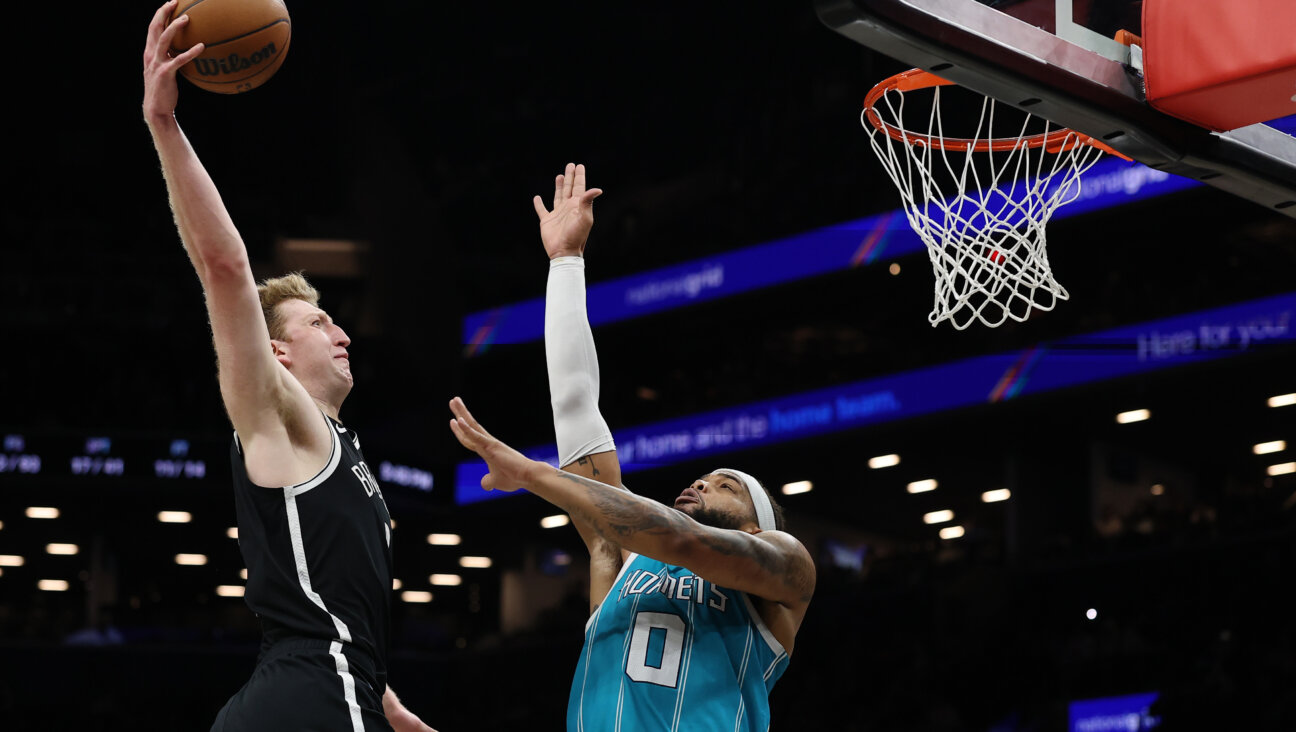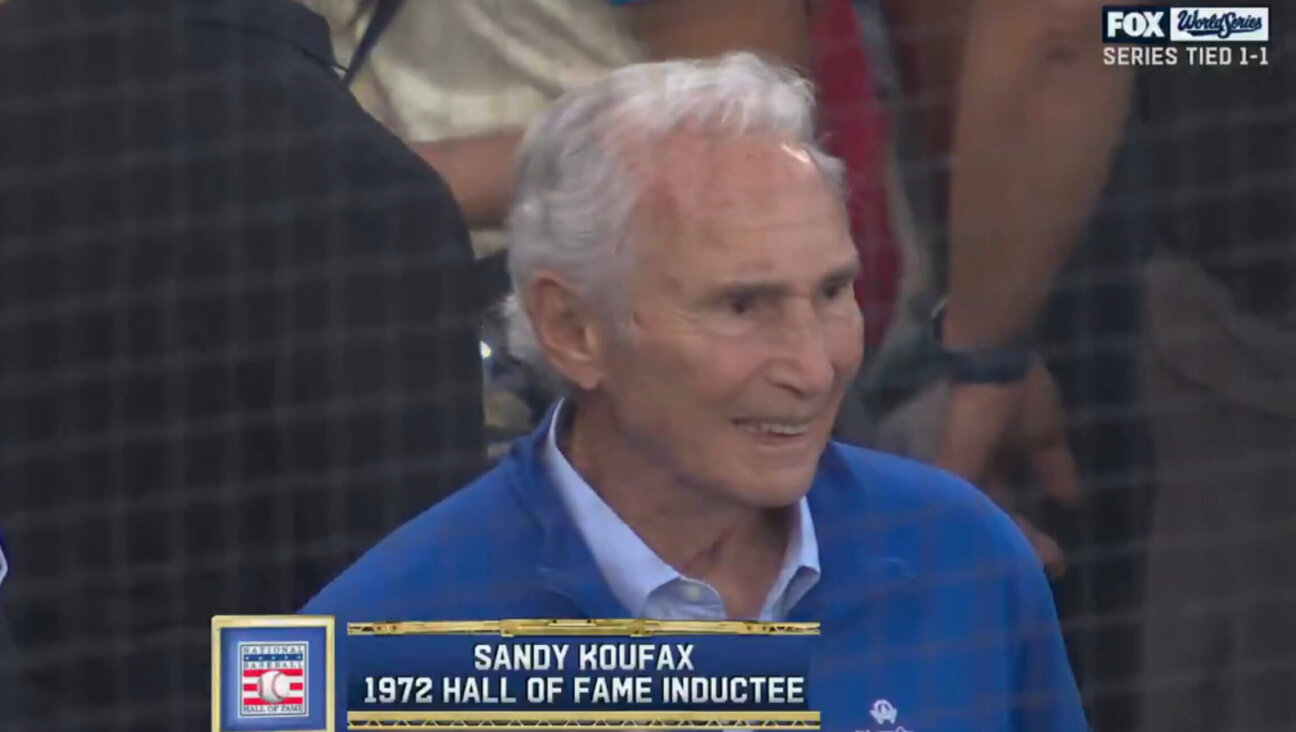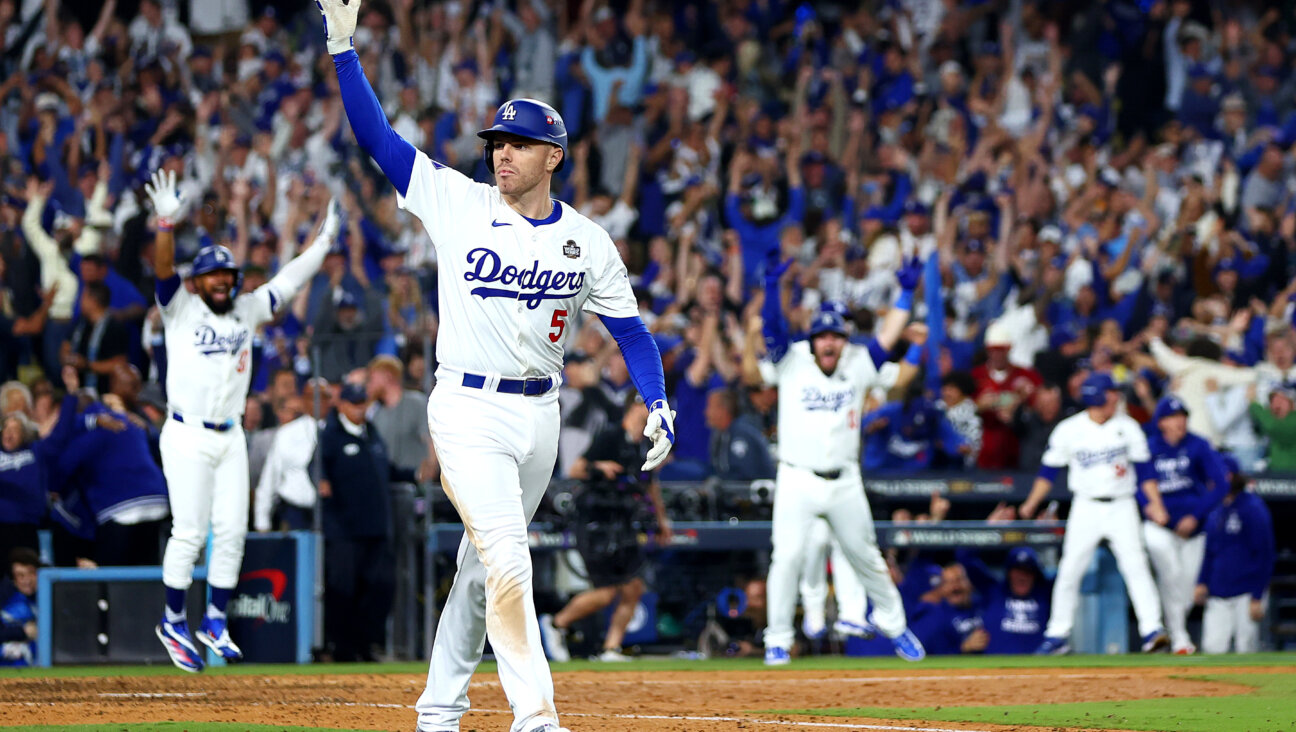There are no Jewish riders in this year’s Tour De France. You’re telling me there’s a whole Israeli team?
Cycling mercenaries brought to you by a Canadian Jewish philanthropist
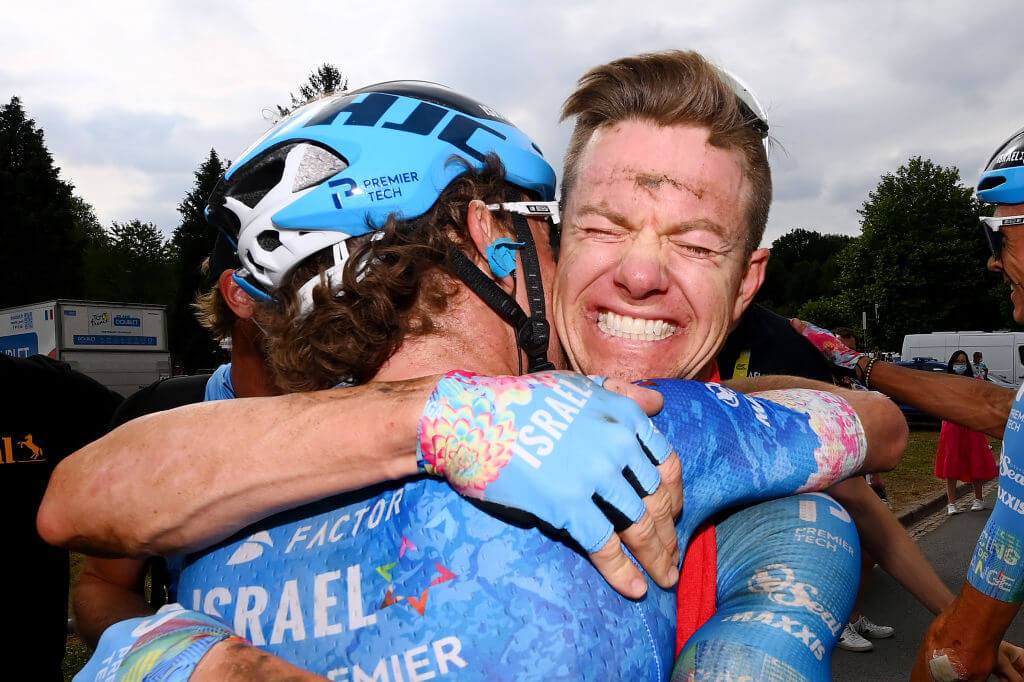
Michael Woods and Simon Clarke of Israel Premier Tech celebrate Clarke’s stage win at the 109th Tour de France in 2022. Photo by Tim de Waele/Getty Images
When the 110th Tour de France begins on Saturday, eight cyclists will cross the starting line wearing the Star of David on their chests — but none of them is Jewish. And while they will be cycling for a team called Israel Premier Tech, they hail from five different countries — none of them in the Middle East.
But the men who assembled this mercenary squad to compete in the three-week race insist it’s an Israeli project — even if it’s not technically a national team. Now preparing for its fourth Tour de France, Israel Premier Tech is largely funded by a Canadian Jewish businessman who wants to develop Israel’s profile in the sport.
While previous year’s Tour de France teams have featured at least one Israeli cyclist, this year’s has only an Israeli substitute, Omer Goldstein. Israel Premier Tech will be headlined by Australian cyclist Simon Clarke, a former Olympian who in 2022 became the first IPT cyclist to win a stage. The other riders hail from Canada, New Zealand, Belgium and Latvia.
“Our purpose is to promote,” said Tsadok Yecheskeli, Israel Premier Tech’s media director. “To get the kids in Israel to say, ‘Hey, I want to be a cyclist.’ But we are also very professional. We want to succeed.”
The team was founded in 2014 as Israel Cycling Academy by Ran Margaliot, an Israeli former cyclist who narrowly missed making the Tour de France in his prime, and Ron Baron, an American Jewish hedge fund manager. They recognized that while Israel had a solid basis for developing the sport — great weather, a strong fitness culture and millions of recreational riders — that it lacked the infrastructure to make it a sport.
In Canadian-Israeli billionaire Sylvan Adams, they found someone to bankroll their ambitions. Adams, a real estate magnate who made aliyah in 2015, had become an accomplished cyclist in his own right after picking up the sport in his 40s.
Adams, whose father survived the Holocaust, had a slightly different goal: to bring what he calls “normal Israel” to an international audience.
“We do sports, we don’t do politics,” Yecheskeli said. “We are not on the left of Israel, or on the right. We are not part of that. We are promoting what Sylvan calls ‘normal Israel,’ the beauty of Israel, and that’s what we are.”
To do that has meant recruiting elite riders from around the world for the short term and financing infrastructure in Israel for the long term.
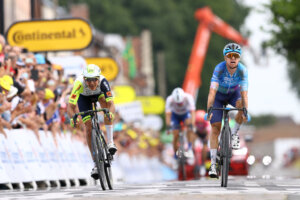
The team made its biggest catch in 2021: four-time Tour de France winner Chris Froome. Froome is still on the team’s 30-man pro tour roster that competes year round — which represents 18 countries in total and has three Israelis — but this year, he wasn’t one of Israel’s eight best.
No matter where they’re from, Israel Premier Tech cyclists visit Israel to learn about the country they nominally represent. Yecheskeli said that includes an annual team tour of Yad Vashem, Israel’s national Holocaust museum, led by the team’s Israeli cyclists.
“The international riders come out as shocked as anyone, any human being,” Yecheskeli said.
Israel Premier Tech is now one of the 25 biggest cycling franchises in the world, and a fixture at the Tour de France. The average Tour team’s annual budget is in the $20 million range, according to estimates, and IPT is the only team in its echelon so dependent on donations, Yecheskeli said. Most are funded entirely through corporate sponsorships.
Israel Premier Tech is one of a few Tour teams that ostensibly ride for a country but whose riders were born elsewhere. UAE Team Emirates and Bahrain Victorious don’t have any riders from those countries.
Adams’ funds built the country’s first velodrome (a cycling arena), and in 2018, he spent $80 million to bring the Giro D’Italia starting line to Israel. Thousands poured onto the streets of Jerusalem to follow the race’s first stage.
Last year’s Tour de France saw the team’s first two stage victories, and this year’s squad hopes to repeat that performance in the next three weeks.
“We need to be a winning team to promote Israel, to have a significant impact,” Yecheskeli said. “That’s how Sylvan looks at it, and he’s right.”


